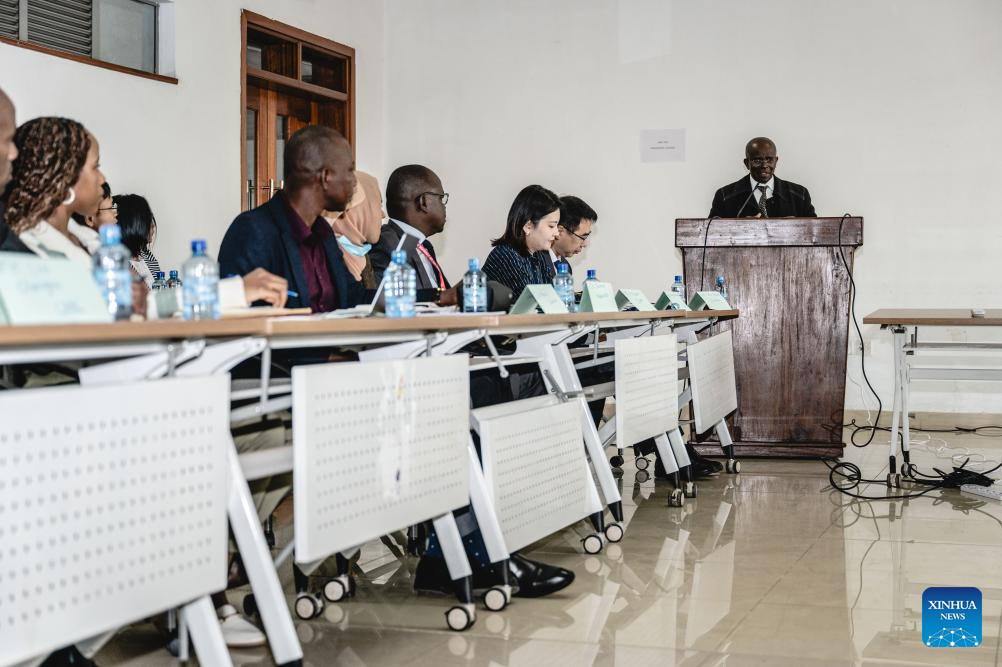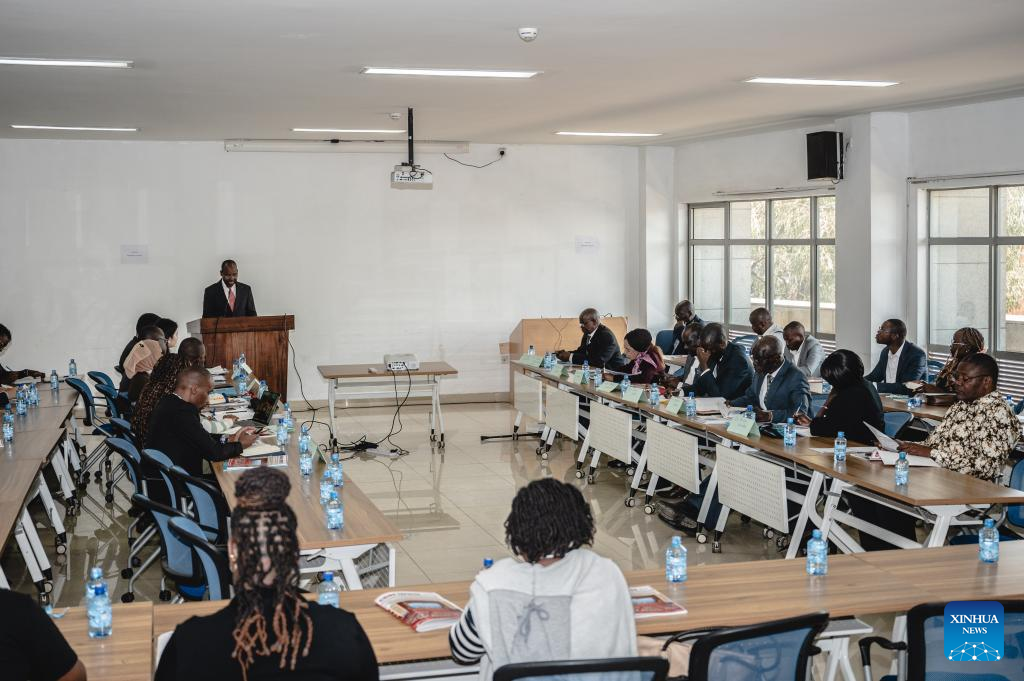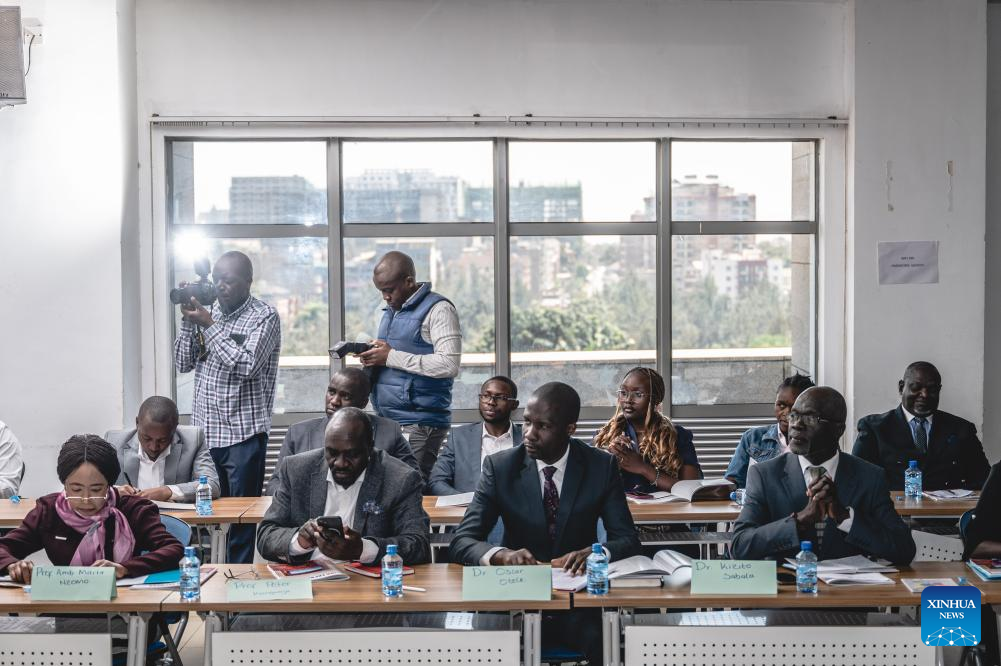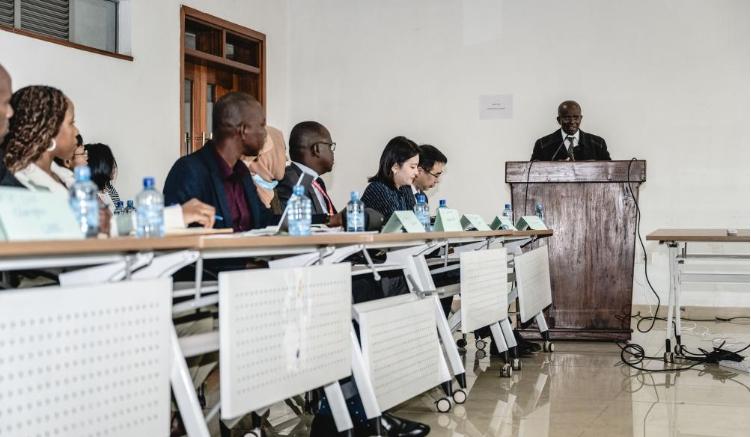People attend a seminar themed "Strengthening Sino-African Relations: Reflections on Two Decades of FOCAC" at the University of Nairobi in Nairobi, Kenya, on Sept. 13, 2024. The seminar was held here Friday to assess milestones achieved since the inception of the Forum on China-Africa Cooperation (FOCAC) more than two decades ago. (Xinhua/Wang Guansen)
NAIROBI, Sept. 13 (Xinhua) -- A seminar was held Friday in Nairobi, the Kenyan capital to assess milestones achieved since the inception of the Forum on China-Africa Cooperation (FOCAC) more than two decades ago.
Senior policymakers, diplomats, scholars and students attended the half-day seminar, themed "Strengthening Sino-African Relations: Reflections on Two Decades of FOCAC."
The seminar was organized by the Africa Center for the Study of China, domiciled at the University of Nairobi, Kenya's oldest university.
Martin Owuor, assistant director of the Asia and Pacific Directorate in the Ministry of Foreign Affairs, said that under the FOCAC, Kenya has gained immensely from bilateral ties with China.
"Kenya and China have enjoyed warm, cordial relations over six decades," Owuor said. "China has contributed to Kenya's socioeconomic transformation through investments in infrastructure, capacity building, food security, renewable energy and ICT."
Owuor noted that Kenya is a major beneficiary of China's proposed Belt and Road Initiative (BRI) even as the East African nation aligns itself with the three initiatives proposed by China covering global development, security and civilization.
Zhang Zhizhong, charge d'affaires of the Chinese Embassy in Kenya, said this year's FOCAC summit elevated China-Africa friendship and cooperation to new heights, adding that China committed to advancing modernization in Africa during the three-day summit.
The modernization drive, according to Zhang, will in the next three years cover diverse areas such as trade, industrial chain cooperation, connectivity, health, agriculture, green development and security.
Patrick Maluki, chairman of the Department of Diplomacy and International Studies at the University of Nairobi, said that since 2000, the FOCAC has evolved to become a vehicle for promoting bilateral trade, investments, education and people-to-people exchanges between Africa and China.
According to Maluki, as one of the outcomes of the 2024 Beijing Summit of FOCAC, enhancing Sino-Africa collaboration in education and research will be key to addressing threats posed by the climate crisis, epidemics and unregulated use of modern technologies.
Peter Kagwanja, chief executive officer of the Africa Policy Institute, a Nairobi-based think tank, observed that the FOCAC's enduring appeal to the Global South, including Africa, has not faded despite geopolitical shifts.
The 2024 FOCAC summit, according to Kagwanja, was unique, impactful and incomparable to forums organized by other major powers that have strategic interests in Africa.
People attend a seminar themed "Strengthening Sino-African Relations: Reflections on Two Decades of FOCAC" at the University of Nairobi in Nairobi, Kenya, on Sept. 13, 2024. The seminar was held here Friday to assess milestones achieved since the inception of the Forum on China-Africa Cooperation (FOCAC) more than two decades ago. (Xinhua/Wang Guansen)
People attend a seminar themed "Strengthening Sino-African Relations: Reflections on Two Decades of FOCAC" at the University of Nairobi in Nairobi, Kenya, on Sept. 13, 2024. The seminar was held here Friday to assess milestones achieved since the inception of the Forum on China-Africa Cooperation (FOCAC) more than two decades ago. (Xinhua/Wang Guansen)







 A single purchase
A single purchase









